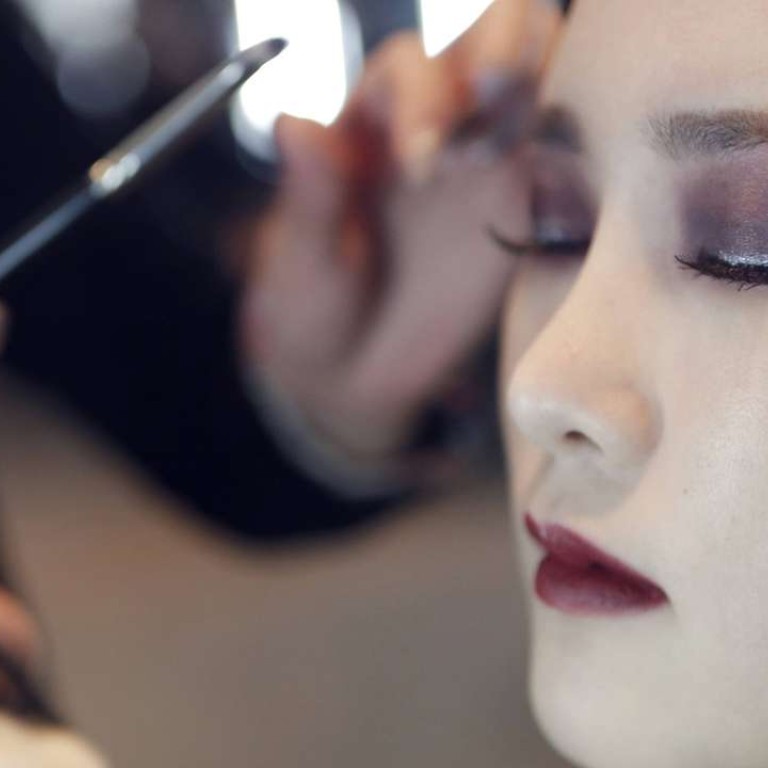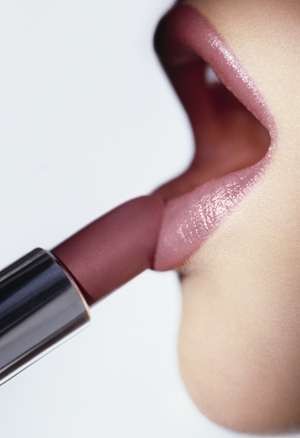
Cuts in make-up tax beautiful in the eyes of US and European brands
China’s reduction or removal of consumption tax on imported cosmetic products set to boost domestic sales
Lipstick and mascara can make you prettier, but to international beauty brands, it’s China’s new import tax that’s likely to be particularly attractive.
Mainland China slashed its consumption tax on imported cosmetics at the start of this month, halving it on premium make-up products and removing the levy altogether on mass-market cosmetics.
Imported make-up products used to have a total effective tax rate of 84 per cent, including the import tariff, VAT and consumption tax, but that’s been cut to 29 per cent for most beauty products and 51 per cent for luxury brands.
China’s Ministry of Finance left the skincare consumption tax unchanged, but increased the tax on premium skincare brands from zero tax to 15 per cent.
The lower tax rates are intended to encourage more Chinese buyers to spend more on home soil, rather than leaving the country to shop.
Goldman Sachs says the moves are likely to benefit European and United States brands, especially, as they tend to be stronger than their Asian counterparts for colour cosmetics like lipstick, eye-shadow and blush, while South Korean products are focussed on skincare.
“Overall, we see this as a positive step to boost domestic spending on imported cosmetic products,” lead author Joshua Lu said in a Goldman Sachs research note.
This will help bring in a greater variety of mass or mid-end colour make-up products, a segment that is growing quickly with the rise of the Chinese millennials
“This will help bring in a greater variety of mass or mid-end colour make-up products, a segment that is growing quickly with the rise of the Chinese millennials.”
The move could also help level the playing field for “bricks and mortar” retail outlets like department store outlets, where beauty products are sold for much more than in the United States, Lu said.
Colour make-up is increasingly attractive to the mainland market. Last year US$148 million-worth of lip make-up was imported into China, a 52.1 per cent increase on the year before, according to Hong Kong Trade Development Council (HKTDC) research.
HKTDC also found the Chinese cosmetics market has been growing quickly, with retail sales of cosmetic products rising from 88.9 billion yuan in 2010 to 204.9 billion yuan last year.
South Korean brands had previously been the major benefactor of the growing beauty market in the mainland, riding off the popularity of K-Pop, Korean dramas and fashion, said HKTDC economist Alice Tsang.
But Tsang does not expect the tax rules to change much for Korean brands, which were already inexpensive. Instead, the changes will benefit United States and European brands, which are seen as having more “prestige”, and which would likely become more affordable.
Nowadays young Chinese women are wearing more make-up in their daily lives than in the past, as they strive to be more like characters they see in Korean and United States dramas, Tsang said.

But the big question remains, when will the lower tax rates be passed on to consumers, with Deloitte tax partner Gao Li Qun suggested cosmetic companies will now be analysing what cuts were feasible.
She expects price reductions to come in before the end of the year.
Currently many Chinese beauty consumers buy their products overseas, or online, but Gao expects the cuts will encourage more people to opt to buy at domestic department stores instead.
Daiwa analyst Iris Park said companies probably wouldn’t cut prices by the full tax saving, as that could suggest to consumers their products were worse quality.
“If you lower by too much it could ruin the brand equity. Especially Korean brands, they look at what the multinationals like L’Oreal and Estee Lauder do, and then follow their lead,” she said.
“To some extent they will have to lower their prices, because I’m pretty sure the Chinese government will push these companies to lower them... It’s hard to know at this stage, by how much.”
“Longer term, the changes should be positive for the brand companies as they become less dependent on duty free sales and expand their China onshore business,” said Park.
The other good news for European brands comes with the pound falling to 31-year lows against the US dollar, while the euro has also dropped to 1.1129 to the greenback, making their products cheaper.
China also cut its import tariffs in June last year, in a bid to stimulate consumer demand, prompting some brands like L’Oreal and Estee Lauder to cut prices.

